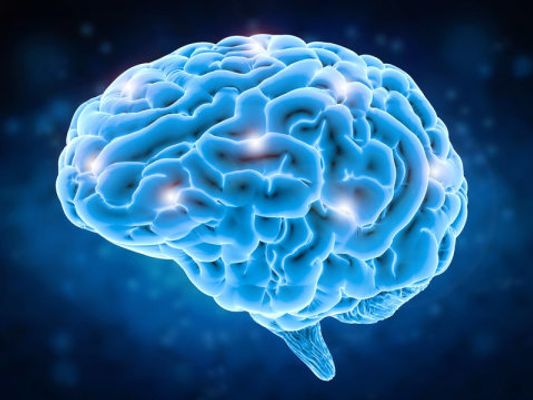1.6.4
Understanding Religious Experience
Religious Experience: Union with a Greater Power
Religious Experience: Union with a Greater Power
Religious experience can be understood in at least three different ways: as union with a greater power, a psychological effect (such as an illusion) and as the product of a physiological effect.


Union with a greater power
Union with a greater power
- This would mean the experience was truthful and so does not merely seem to be an experience of God, but an actual experience of God.
- The problem is that as the experience is merely subjective and private, how can the person who has it be certain of this?


The principle of credulity
The principle of credulity
- Swinburne formed his principle of credulity to answer this question.
- The principle states that we ought to believe that things are as they seem to be unless we have evidence that we are mistaken.
- This is an axiomatic (obviously true) principle of rationality which we apply all the time without even considering it in everyday life.


Quotation from Swinburne
Quotation from Swinburne
- “If you say the contrary—never trust appearances until it is proved that they are reliable—you will never have any beliefs at all. For what would show that appearances are reliable, except more appearances? And, if you cannot trust appearances as such, you cannot trust these new ones either. Just as you must trust your five ordinary senses, so it is equally rational to trust your religious sense.”


Exception to axiomatic principle
Exception to axiomatic principle
- So Swinburne asks why we make an exception to an axiomatic principle of rationality when it comes to religion.
Religious Experience: Union with a Greater Power
Religious Experience: Union with a Greater Power
Religious experience can be understood in at least three different ways: as union with a greater power, a psychological effect (such as an illusion) and as the product of a physiological effect.


Common core to experiences
Common core to experiences
- William James used a psychological approach and gathered a large range of testimonies. He argued for a ‘common core’ to religious experience.


William James' conclusions
William James' conclusions
- The visible world is part of a more spiritual universe from which it draws its chief significance.
- Union/harmonious relation with that higher universe is our true end.
- Prayer or inner communion with the spirit thereof - be that spirit “God” or “law” - is a process wherein work is really done, and spiritual energy flows in and produces effects, psychological or material, within the phenomenal world.


William James - characteristics
William James - characteristics
- Religion also includes the following psychological characteristics:
- A new zest which adds itself like a gift to life and takes the form of either lyrical enchantment or of appeal to earnestness and heroism.
- An assurance of safety and a temper of peace, and, in relation to others, a preponderance of loving affections.


Mackie & Dawkins' criticisms
Mackie & Dawkins' criticisms
- Of James, Mackie says: even what he classes as genuinely religious experiences (ones which leave ‘good dispositions’ in the believer) do not intrinsically resist explanation in purely human terms.
- Others such as Dawkins have argued similarly: psychological or physiological explanations are far more likely given the prior improbability of a divine being who interacts with humans.
Religious Experience: Psychological & Physiological Effects
Religious Experience: Psychological & Physiological Effects
Religious experience can be understood in at least three different ways: as union with a greater power, a psychological effect (such as an illusion) and as the product of a physiological effect.


A psychological effect - Freud
A psychological effect - Freud
- Often experiences can deceive us (like hallucinations). Some people may be mistaken and even self-deluding.
- Freud thought that we feel helpless, need a father figure and create one unconsciously with religious experience, which helps us satisfy the need for security.


A psychological effect - Jung
A psychological effect - Jung
- Jung believed that archetypes in the collective unconscious can cause religious experience.
- Just because some people are mistaken or hallucinate, it doesn’t mean all religious experience is of this character.
- Just because God appears as a father in the way we need Him, it doesn’t prove that religious experience is not true – it may be that God appears that way because he has placed that deep need in us.


Physiological effects
Physiological effects
- There are well-documented links between the body and the mind.
- There are ‘psychosomatic’ factors (which means caused by anxiety/worry instead of injury) in some illnesses, such as psoriasis (a skin disease) and high blood pressure. And the mind can affect things like heart rate, feelings of nausea and so on.
- As many religious experiences can be subtle and feeling-based, it is possible that physiological factors may be a major cause.


Ascetics & magnetic fields
Ascetics & magnetic fields
- Some possible causes include:
- Ascetic practices (avoiding pleasures, such as fasting) can lead to hallucinations.
- The Persinger Helmet - a helmet Persinger invented to study creativity, religious experience and the impact of lobe stimulation - shows how manipulating magnetic fields in the brain can give rise to feelings of a ‘presence’.


Causes - limited understanding
Causes - limited understanding
- We still have a very limited understanding of how the brain works and interacts with physical processes in other parts of the body – it is possible that we will understand religious experiences in natural terms when our knowledge grows.
1Philosophy of Religion
1.1Ancient Philosophical Influences: Plato
1.2Ancient Philosophical Influences: Aristotle
1.3Ancient Philosophical Influences: Soul, Mind, Body
1.4The Existence of God - Arguments from Observation
1.5The Existence of God - Arguments from Reason
1.6Religious Experience
1.7The Problem of Evil
1.8The Nature & Attributes of God
1.9Religious Language: Negative, Analogical, Symbolic
2Religion & Ethics
2.1Natural Law
2.2Situation Ethics
2.3Kantian Ethics
2.4Utilitarianism
2.5Euthanasia
2.6Business Ethics
2.7Meta-Ethical Theories
2.8Conscience
3Developments in Christian Thought
3.1Saint Augustine's Teachings
3.2Death & the Afterlife
3.3Knowledge of God's Existence
3.4The Person of Jesus Christ
3.5Christian Moral Principles
3.6Christian Moral Action
3.7Development - Pluralism & Theology
3.8Development - Pluralism & Society
3.9Gender & Society
3.10Gender & Theology
Jump to other topics
1Philosophy of Religion
1.1Ancient Philosophical Influences: Plato
1.2Ancient Philosophical Influences: Aristotle
1.3Ancient Philosophical Influences: Soul, Mind, Body
1.4The Existence of God - Arguments from Observation
1.5The Existence of God - Arguments from Reason
1.6Religious Experience
1.7The Problem of Evil
1.8The Nature & Attributes of God
1.9Religious Language: Negative, Analogical, Symbolic
2Religion & Ethics
2.1Natural Law
2.2Situation Ethics
2.3Kantian Ethics
2.4Utilitarianism
2.5Euthanasia
2.6Business Ethics
2.7Meta-Ethical Theories
2.8Conscience
3Developments in Christian Thought
3.1Saint Augustine's Teachings
3.2Death & the Afterlife
3.3Knowledge of God's Existence
3.4The Person of Jesus Christ
3.5Christian Moral Principles
3.6Christian Moral Action
3.7Development - Pluralism & Theology
3.8Development - Pluralism & Society
3.9Gender & Society
3.10Gender & Theology
Unlock your full potential with Seneca Premium
Unlimited access to 10,000+ open-ended exam questions
Mini-mock exams based on your study history
Unlock 800+ premium courses & e-books